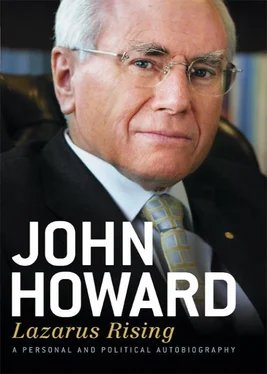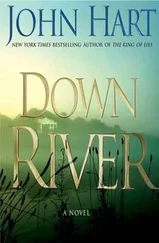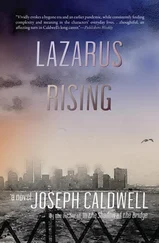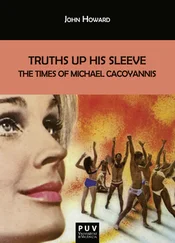During my very first days in parliament, Malcolm Fraser, shadow minister for industrial relations, saw to it that I joined him and several other colleagues for afternoon tea. He wasn’t overtly touting for support, but had taken the trouble to demonstrate an interest in new members. I already had a good view of his abilities and I listened keenly to what he had to say. He argued that the Coalition had to produce policy alternatives, not just oppose the Government.
For a brand-new member, the joint sitting was an amazing experience. All members and senators were seated in the House of Representatives chamber; there were special rules of procedure for the sitting, which was fully televised. Bill Snedden wisely used it as a forum to continue his general attack on the Government’s handling of the economy. Economic conditions were deteriorating quite rapidly, and further debate on the substance of the bills which had been blocked in the previous parliament was largely academic. Those bills were going to be passed at the joint sitting. I was placed at the joint sitting with John Carrick and Margaret Guilfoyle from the Senate, and one of my fellow new members, Alan Cadman. John and Margaret were very helpful.
Being a new member who was yet to make his maiden speech, I naturally did not participate in any of the debates at the joint sitting. I was pleased about this, as it was, uniquely, an opportunity to listen to speakers from both sides, and for the first time make my own assessments of their respective abilities. I was tremendously impressed with Kim Beazley (father of the subsequent Opposition leader), the Labor Education Minister, who was a very powerful orator.
I joined several parliamentary and party committees and became secretary of the opposition’s education committee. The shadow minister for education was Jim Killen, and our main line of attack against Labor was its ambiguous policy towards helping independent schools. After the joint sitting, parliament resumed a more normal pattern, and I had my first opportunity of witnessing Whitlam’s performance at question time. He was a fine parliamentarian, much better than Snedden. With his sharp wit and rhetorical flourishes he was superior to anyone on our side. That, of course, was not enough. The economic situation was worsening, and already the Labor caucus was behaving in a completely undisciplined fashion.
Frank Crean was Treasurer at the time and had an unenviable task. The economy was sliding rapidly and he had a Prime Minister who would never back him on really major issues and was himself often responsible for unjustified increases in government spending. On top of this the Labor caucus reserved the right to overrule the cabinet on the detail of economic policy. This was precisely what happened to a statement announcing certain economic measures, deemed necessary by the Government, which Frank Crean had planned to make on 23 July 1974.
Most of those measures were rejected by the Labor caucus immediately before the statement was due to be delivered. It was too late to alter the statement, so Frank Crean was left with the highly embarrassing predicament of delivering a statement full of rhetoric about the Government’s determination to take control of a difficult situation, but without any announcements of substance to support it. It was hard not to feel sorry for him.
After this incident, it was obvious that Frank Crean’s days as Treasurer were numbered. Crean was no great believer in fiscal restraint, but he did have some idea of how difficult the Government’s challenge had become, due to changed international and domestic economic conditions. Inflation had become a big problem and unemployment had begun to rise. By contrast, Gough Whitlam not only failed or was unwilling to acknowledge the new realities, but appeared hurt by them, as if such diversions had no right to interfere with his grand plan for Australia.
My real induction into parliamentary life was my maiden speech. Our first child, Melanie, was only a few weeks old, so Janette could not come to the maiden speech. Melanie had been born on 1 August, and I had been present at the birth, as would be the case with our two sons. It has been common practice for a long time now for fathers to be present at the births of their children, but it was not so common more than 30 years ago. I am so glad that I was, as it was an added link in our lives, and I am sure of help to Janette.
My mother was able to attend and sit in the Speaker’s Gallery during my speech. I was very grateful for that. Mum was a shy person, but she took an enormous pride in what I had achieved by being elected to the national parliament. I was nervous, which was natural, but I was well satisfied with the speech. Delivered on 26 September 1974, it emphasised the importance I attached to individual effort, the need to combat loneliness in big cities, the value of the coalition between the Liberals and the Country Party, freedom of choice in education and, very importantly, it contained a strong attack on the big increase in government spending contained in the recent budget. I did not read my speech, but delivered it from headings. That was to be the pattern for the long years I spent in parliament. Almost all of the other maiden speeches were read in their entirety.
Within days I was called upon at short notice to support Jim Killen, the shadow Education minister, in a matter-of-public-importance debate concerning the Whitlam Government’s policies towards independent schools. This is a traditional debate, which occurs after question time each day, when the opposition has a go at the Government on some current issue, and because I was able, at short notice, to participate in this debate I won some brownie points in the whip’s office. All that impromptu high school debating practice was now being put to good use.
* * *
The Family Law Bill, which was designed fundamentally to restructure Australia’s divorce law, had been introduced into parliament (in the Senate) on 1 August 1974. The bill was the brainchild of Lionel Murphy, Gough Whitlam’s Attorney General. It had Whitlam’s enthusiastic support, and directly mirrored progressive thinking at the time that Australia should embrace no-fault divorce. There was strong support in the community for overthrowing the existing framework, which only permitted divorce on specific grounds, such as adultery, desertion or cruelty.
Having done some divorce work as a lawyer, I was familiar with the rancour usually surrounding marriage breakdown, and believed that big changes were needed. I felt that where a marriage had completely broken down, no good purpose was served by barriers being placed in the way of legally dissolving that marriage, provided that proper regard was paid to the welfare of any children.
A particularly distasteful aspect of the old law was the frequent practice of private investigators, at the instigation of an aggrieved husband or wife, conducting divorce raids to obtain photographs of people in compromising circumstances. In many hours of debate on the Family Law Bill there was general agreement about the need for significant change. The question was, how far the changes should go. There was concern, which I shared, that the bill might tip the balance too far in the direction of diminishing the value of marriage through making it too easy to obtain a divorce.
The strongest push for change came from the more strident feminist groups, who saw easier divorce laws as a way of obtaining greater equality of treatment for women.
There was no more important piece of social legislation debated in the time that I was in federal parliament than the Family Law Bill. All parties allowed their members a free vote, and this exposed real fissures and bitterness within the Labor Party. The divide was between its more conservative members, the majority having an Irish Catholic heritage, who had worries about the bill, as opposed to the growing number of progressive and socially libertarian MPs in Labor ranks, who saw the measure as a test of the Labor Party’s modernist virility.
Читать дальше












